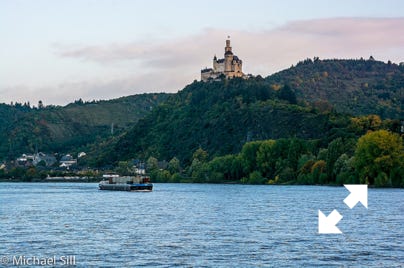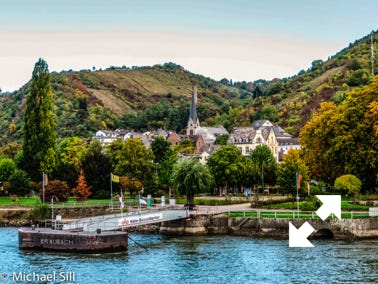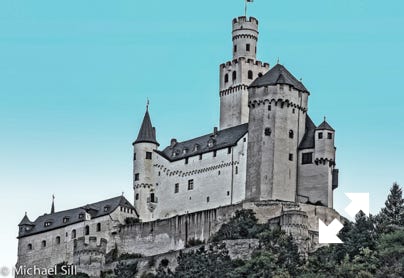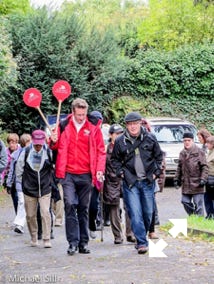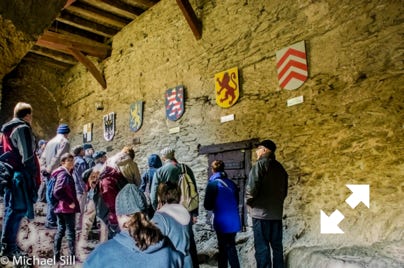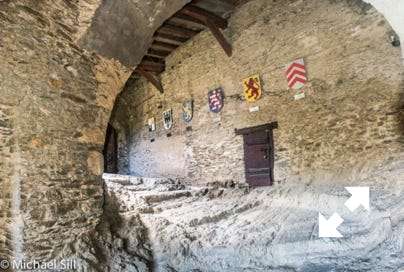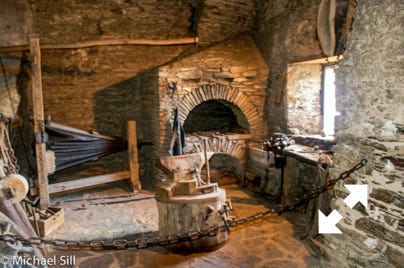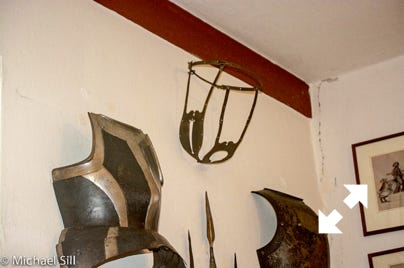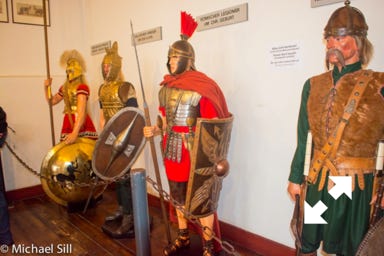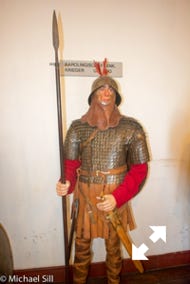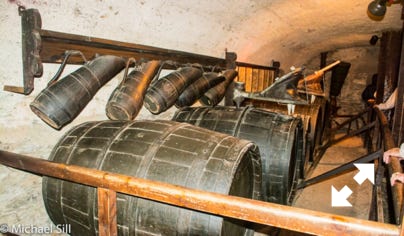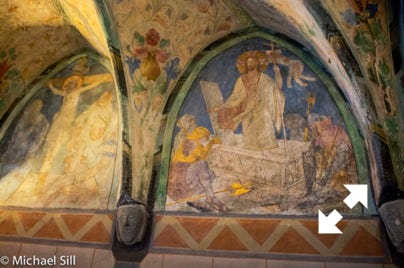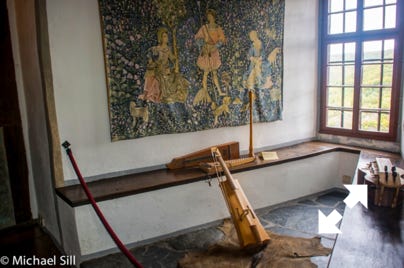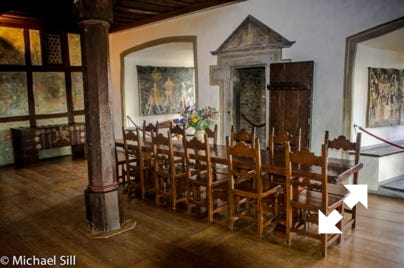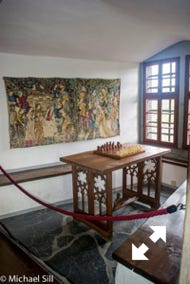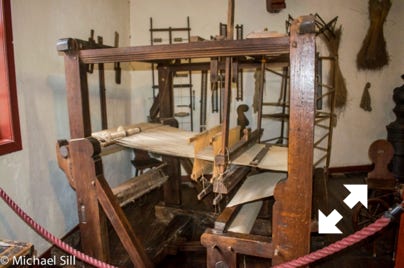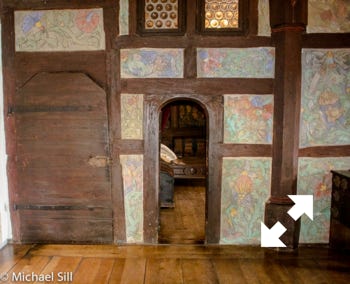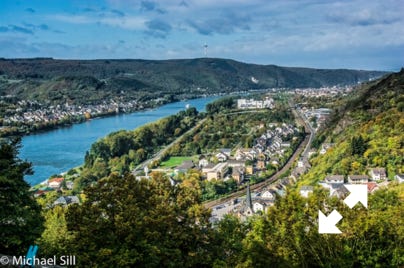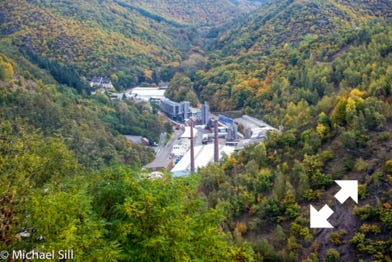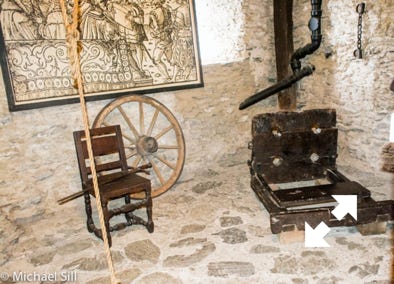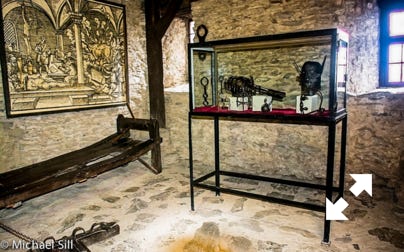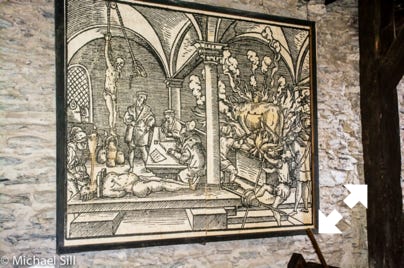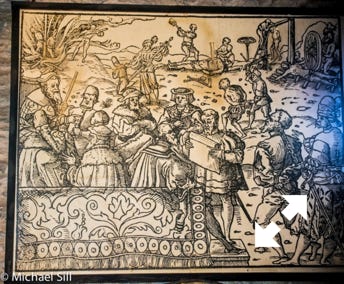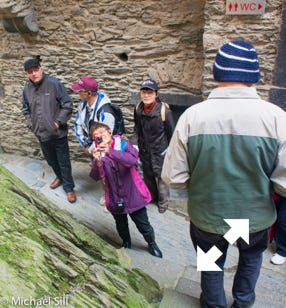The Marksburg and Braubach area was first settled during the bronze age as it was rich in ore. The castle was built to protect and defend this resource. It is now the home of the German Association of Castles which maintain and restore this cultural heritage for Germany. Marksburg was never destroyed by an invader. In fact, the worst damage was taken by artillery during WWII when the allies came through. Now repaired, it remains the purest form of medieval castle on the river, and a site not to be missed if you come this way. A history of it is here: <https://www.marksburg.de/en/history-of-marksburg-castle.html#/>.
The town of Braubach and
Marksburg Castle atop the hill.
Braubach dock.
The castle from below.
I'm talking to Lutz Hagen,
